How To Care For A Newborn Baby During COVID-19 — Especially When Your Partner Is An Essential Worker
Use these tips to help keep your new baby safe and healthy during the pandemic.
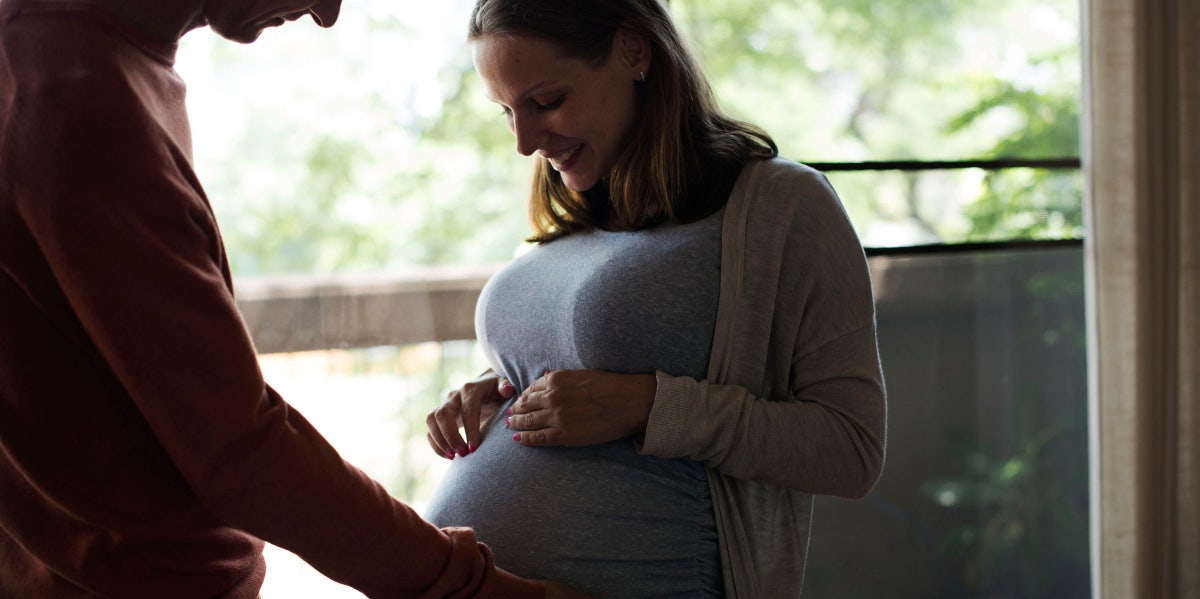 via 123RF
via 123RF Pregnancy during COVID-19 (Coronavirus) can be challenging for both the expecting mother and her partner.
Due to this pandemic, relationship advice for new or expecting parents is more important than ever.
Welcoming a newborn into the world can be an overwhelming experience of pure joy, fear and anxiety.
The joy of holding and loving the innocence of a baby can manifest into an anxiety that questions your capability to protect and nurture something as precious as a new life.
It’s practically a right of passage for new parents to feel anxious, but 2020 has given expecting parents an entirely new set of challenges to navigate as the uncertainties of COVID-19 continue to loom.
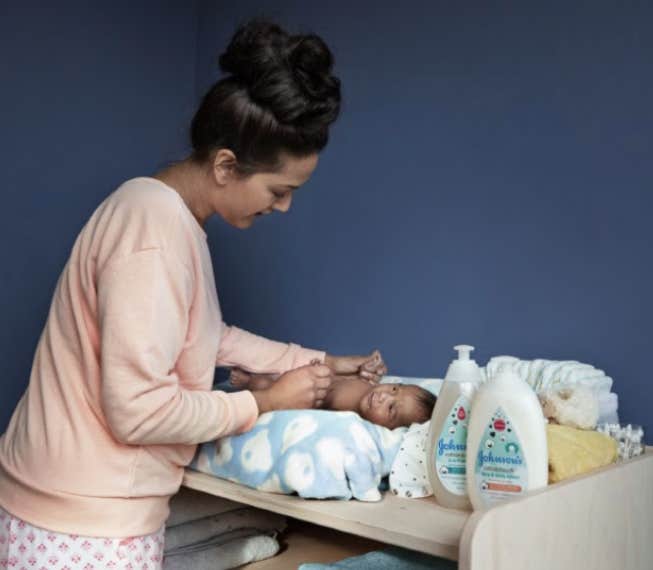
While the American College of Obstetricians and Gynecologists states that “with regard to COVID-19, the limited data currently available does not indicate that pregnant individuals are at an increased risk of infection,” there are still unknown variables that have and will continue to disrupt birth plans.
For many, birth plans help new parents feel more prepared and comfortable before and after delivery.
Now new parents have to face questions like:
What should I pack for the hospital during the pandemic? (Check out this handy hospital packing list put out by Johnson’s Baby.
Can your partner be with you in the delivery room?
How will my prenatal and postpartum care change?
Will my baby and I lose access to necessary amenities?
Some couples also face this daunting question: how to handle a new baby when your partner is an essential worker?
While COVID-19 has shed light on the importance of doctors, nurses, grocery store workers, delivery drivers, etc., the virus has also put these people and their families at a higher risk.
So when one of your biggest concerns as a parent is protecting your child, what do you do when your partner is bravely exposing themselves to an unprecedented virus on the front lines?
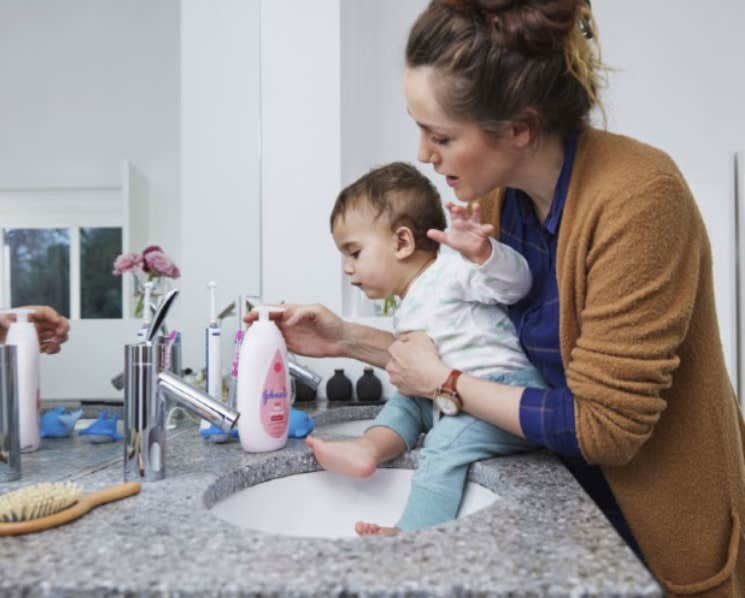
Parenting and pregnancy face new challenges in 2020. Inspired by Johnson’s mission to “Support the health and well-being of all children to help give every child the best start in life,” here are a few tips for expecting couples to prepare for their new baby in the era of COVID-19:
1. Have important conversations about rules and boundaries with others
When it comes to any relationship, communication is key.
Adjusting your birth plan and approach to parenting during COVID-19 means having important conversations about rules and boundaries for your household.
This means creating a safe space for you and your partner to voice opinions and concerns and to discuss important topics and possible worst-case scenarios.
A.) Discuss who will be able to see the baby
Regardless of COVID-19 or not, your support system plays an important role in welcoming a baby into the world.
They offer a positive and caring balance to those sleepless nights, frustrating breastfeeding issues and other harsh learning curves that come with being a parent.
Unfortunately, this pandemic will put most of those who you confide at least six feet apart unless you and your partner reach a mutual agreement where a designated and trusted person will be allowed to see and help care for the baby.
Maybe you already have a live-in parent who is willing to take the extra precautions on behalf of the newborn?
Or another member of your support system who is willing to self-quarantine before the birth and step-in as necessary for the essential worker who may need to socially distance themselves?
Whatever you decide, it’s an important compromise for you and your partner to agree upon and feel comfortable with.
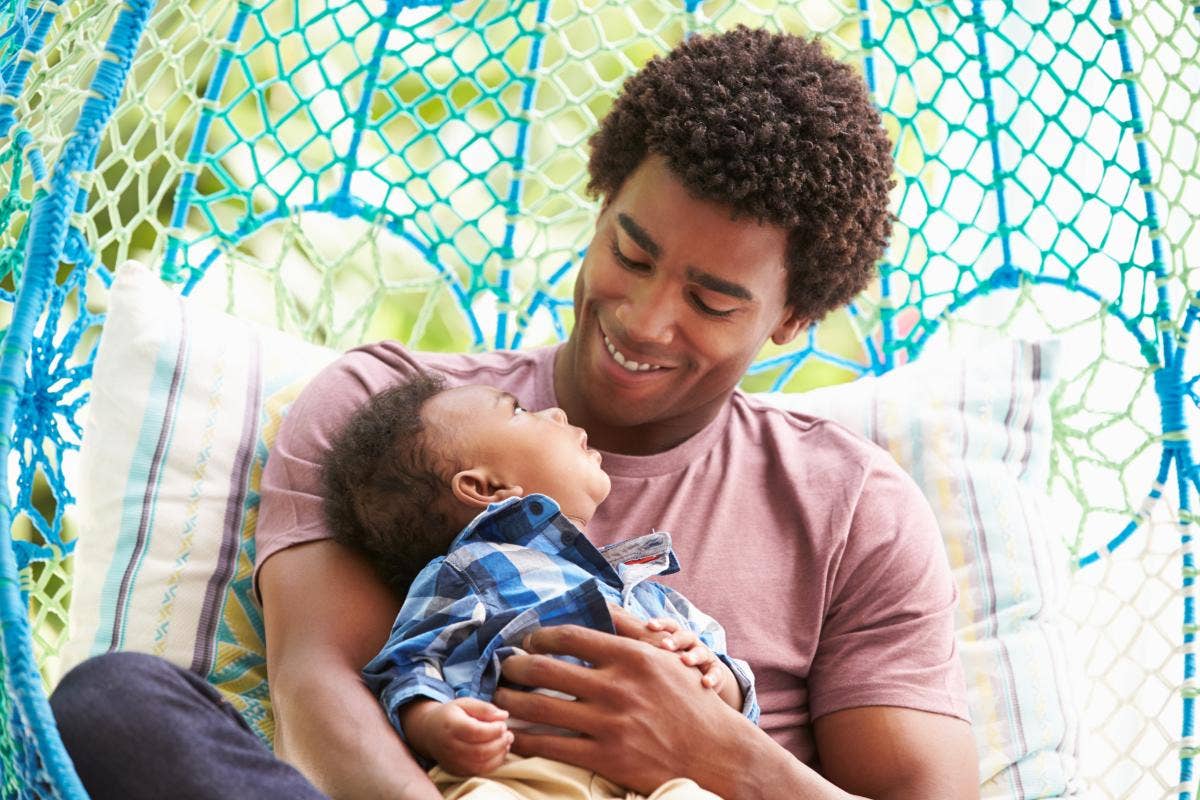
B.) Discuss what social distancing measures will be put into place when people visit the baby
What about the relatives and friends who are anxiously awaiting the new arrival?
Discussing what social distancing measures will be put into place when people visit the baby is a productive way for you to consider ideas like Zoom parties, car parades or introductions via glass barriers.
Plus, these plans may even give you and your partner a welcomed respite from the unfortunate circumstances.
C. ) Discuss if/when the baby will be taken out of the house
This discussion depends on a variety of factors, including where you live and current rules and regulations, but also what you both feel comfortable with.
What precautions will you take for doctor’s visits? Do you feel comfortable going on walks or runs with your newborn? How do you plan to divide necessary errands? Consider what rules you will make regarding these daily situations.
Although initially, these conversations may seem daunting, you may find that it not only gives you a playbook on how to deal with your situation and subsequent stress but also grounds you, your partner and your family.
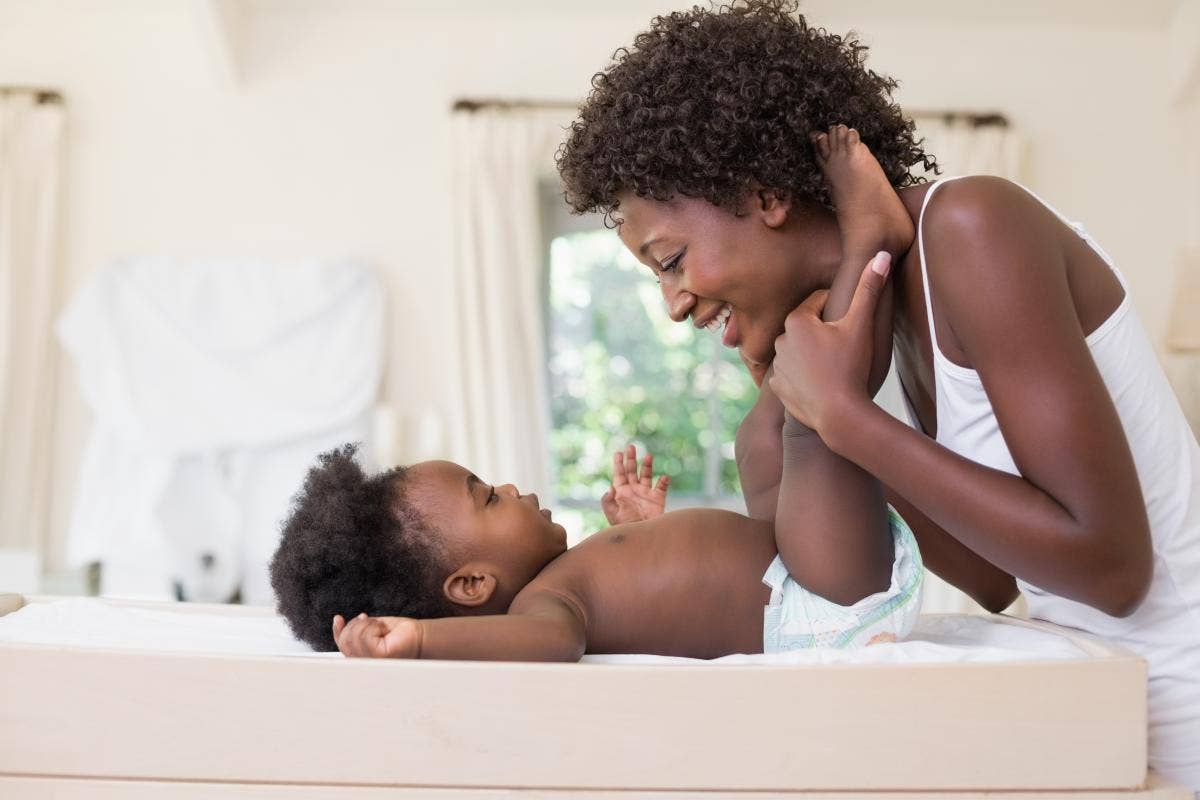
2. Discuss how you’ll social distance in the same house while pregnant
Another important topic for discussion is how much or how little you and your partner plan to socially distance while pregnant.
According to the Centers for Disease Control and Prevention (CDC), pregnant people are believed to have the same COVID-19 risk as non-pregnant adults and transmission from mom to baby is low. Although the CDC does encourage caution and provides a series of guidelines for pregnant individuals and new parents.
This may mean socially distancing from an essential working partner while living in the same house. Here are some tips on how to navigate this situation as an expecting couple:
A. Essential working partner showering and changing clothes immediately after coming home.
B. Partners wear masks around the house as this can help prevent the spread of COVID-19 through water droplets (saliva) entering the nose, mouth, and eyes.
C. Partners sleep in different rooms (although this can be challenging, it may reduce the risk of spreading germs, for example, if one of you were to cough while sleeping in the same bed.)
D. Partners limit physical interactions like kissing and sex.
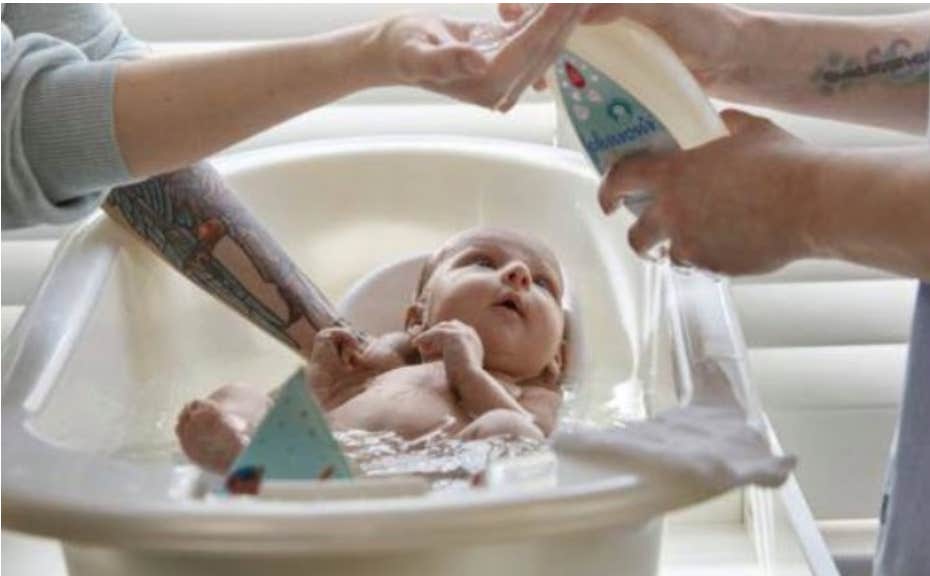
3. Discuss how you’ll social distance in the same house when the baby arrives
The CDC confirms a newborn can be infected after birth if in close contact with someone who has the virus. So this makes it essential to have the conversation about how you will social distance in the same house when the baby finally arrives.
Here are some options to consider:
A. Partner and baby may want to sleep in a separate room than the essential working partner.
B. The non-essential working partner may be in charge of feeding, bathing and changing the baby. Note, consider the products you use to care for and bathe the baby.
A product like Johnson’s® Head-To-Toe® Baby Wash and Shampoo is a great option since it’s proven to wash away 99.9% of germs.
C.Discuss exactly how the essential working partner can interact with the baby. For example:
- Reading the baby a story from across the room.
- Holding the baby while wearing protective clothing like a mask, face shield, and gloves.
- Rocking the baby while they’re in a cradle (while wearing gloves and a mask)
- Entertaining the baby with a puppet show from across the room
The challenges that follow COVID-19 are not only an attack on physical health but also mental health, so if possible, take time to check in on yourself and your loved ones.
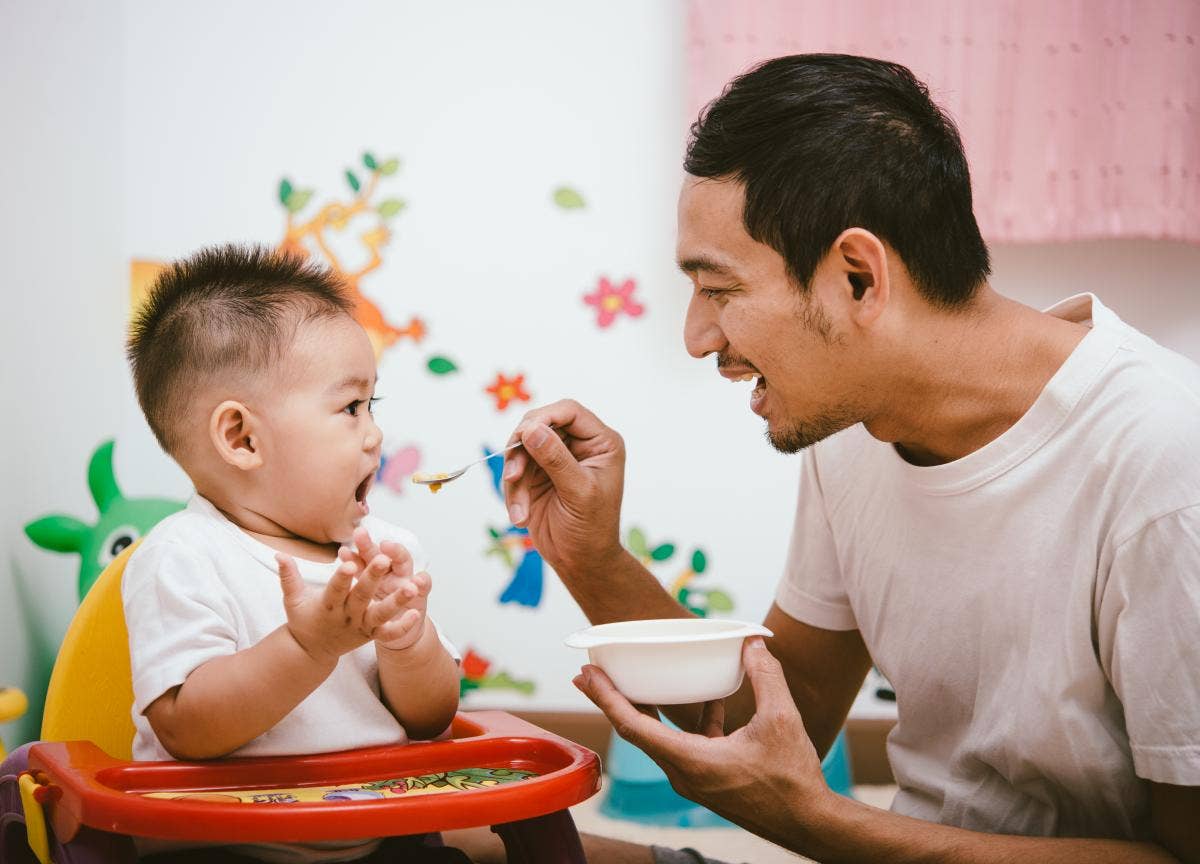
There’s no full-proof or CDC-approved plan on how to navigate the challenges of handling a baby when your partner is on the frontlines, but openly discussing this new reality may help mitigate some of the uncertainty and anxiety associated with having a baby during COVID-19.
Are you a new (or soon-to-be) mother looking for more resources to keep you and your baby safe during COVID-19? Visit the #InItTogether resource hub from Johnson’s Baby+ Parent’s for more helpful information.
Shannon Ullman is a writer who focuses on love, relationships, and parenting.
-Created in partnership with Johnson & Johnson Consumer Inc.

